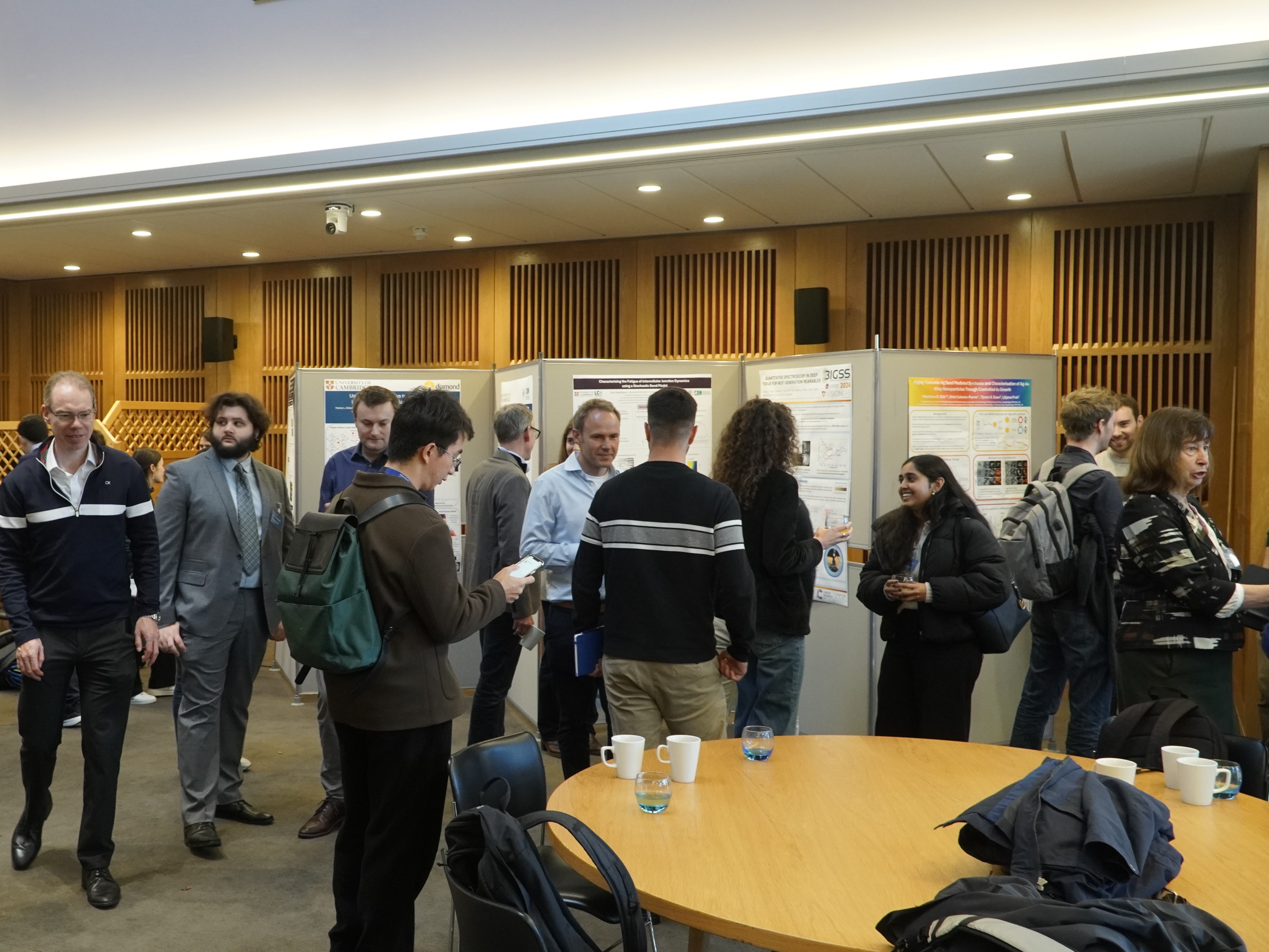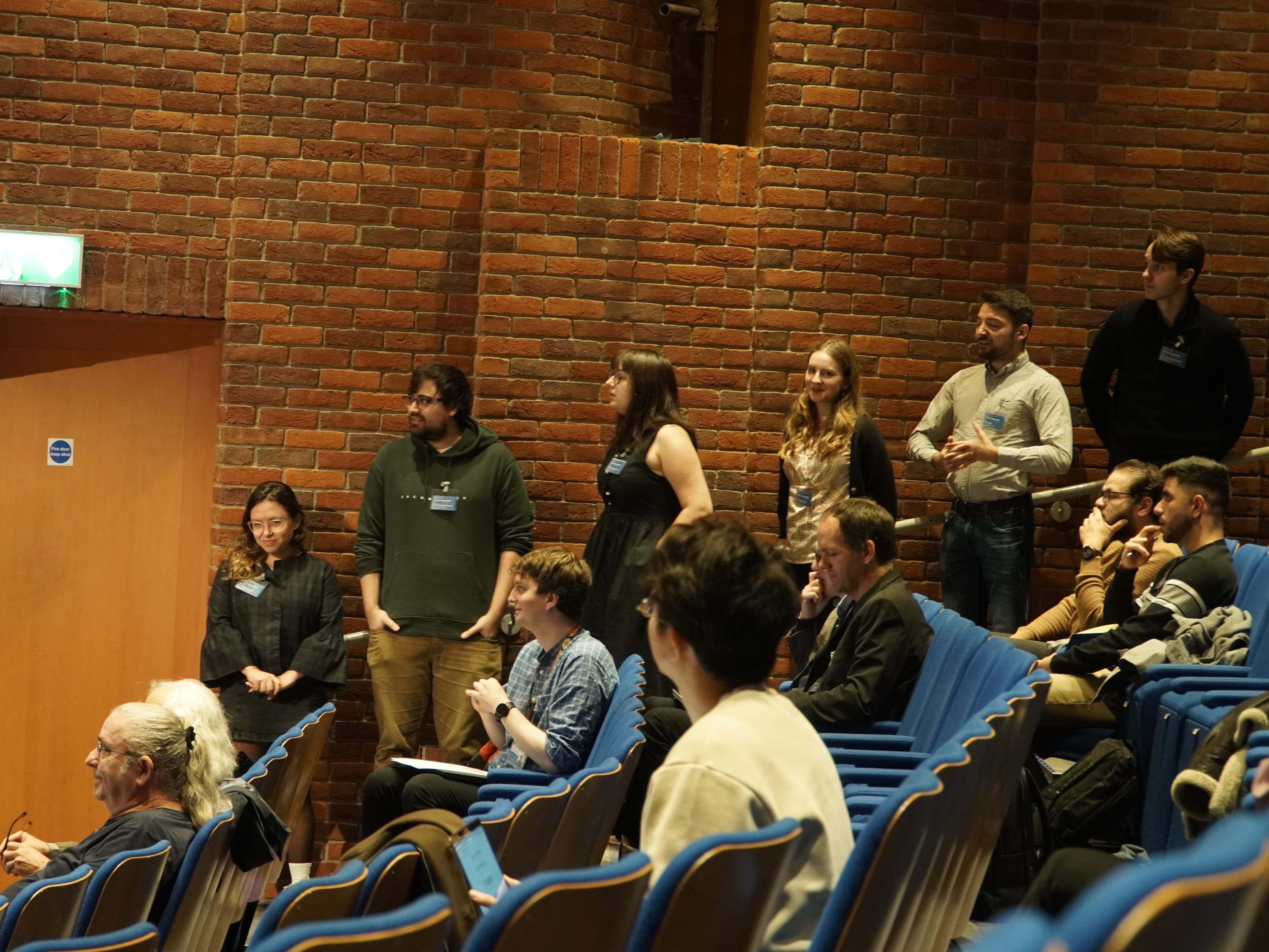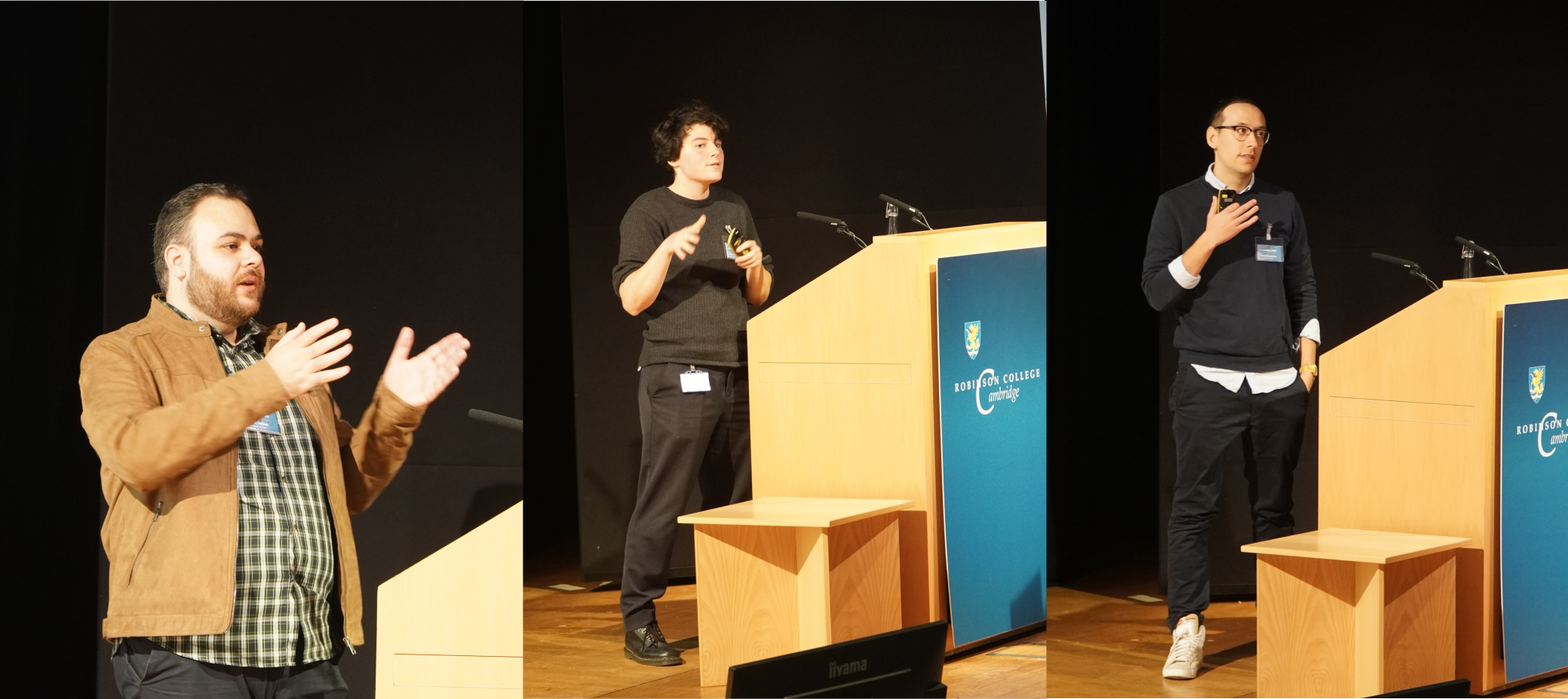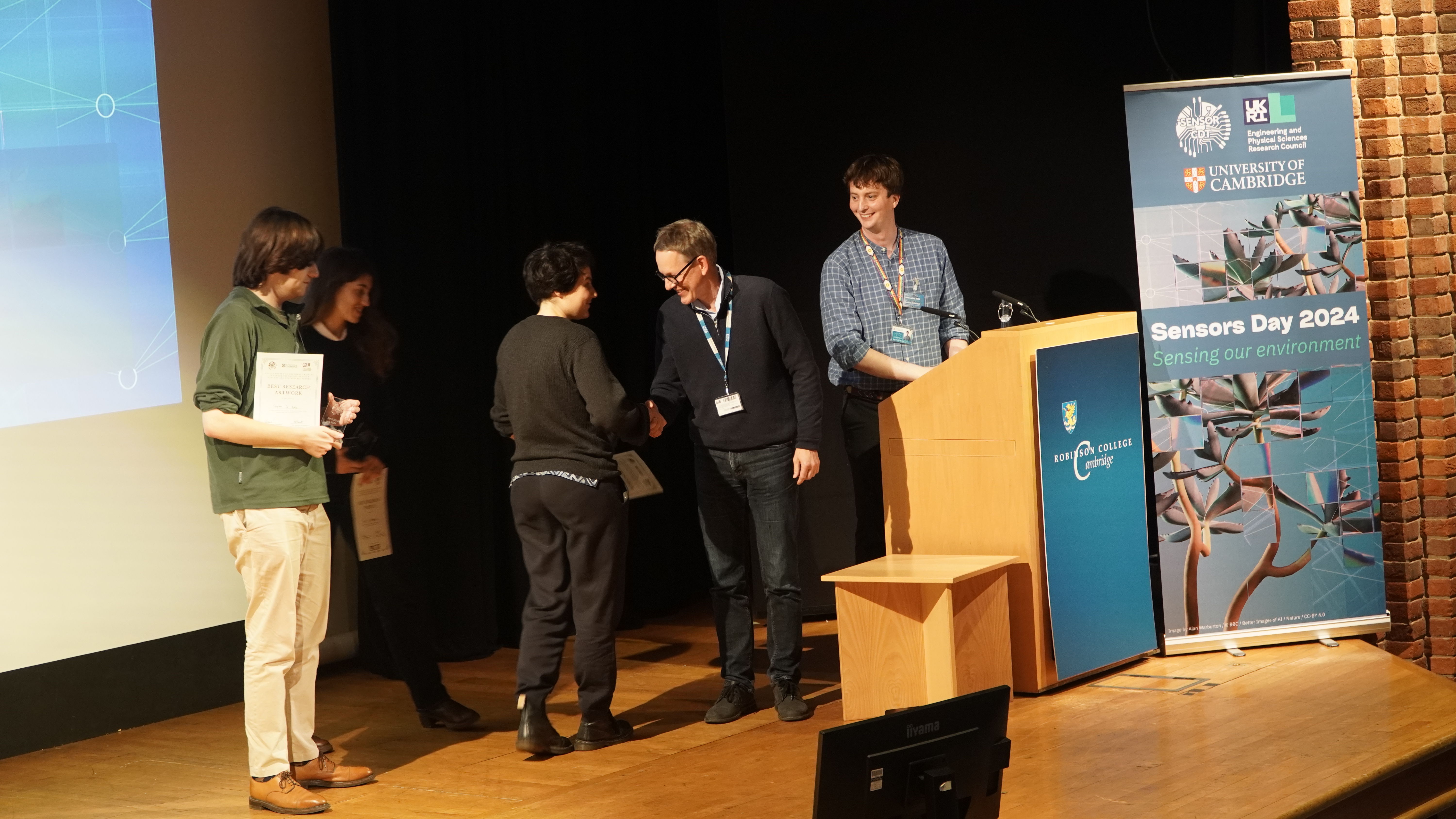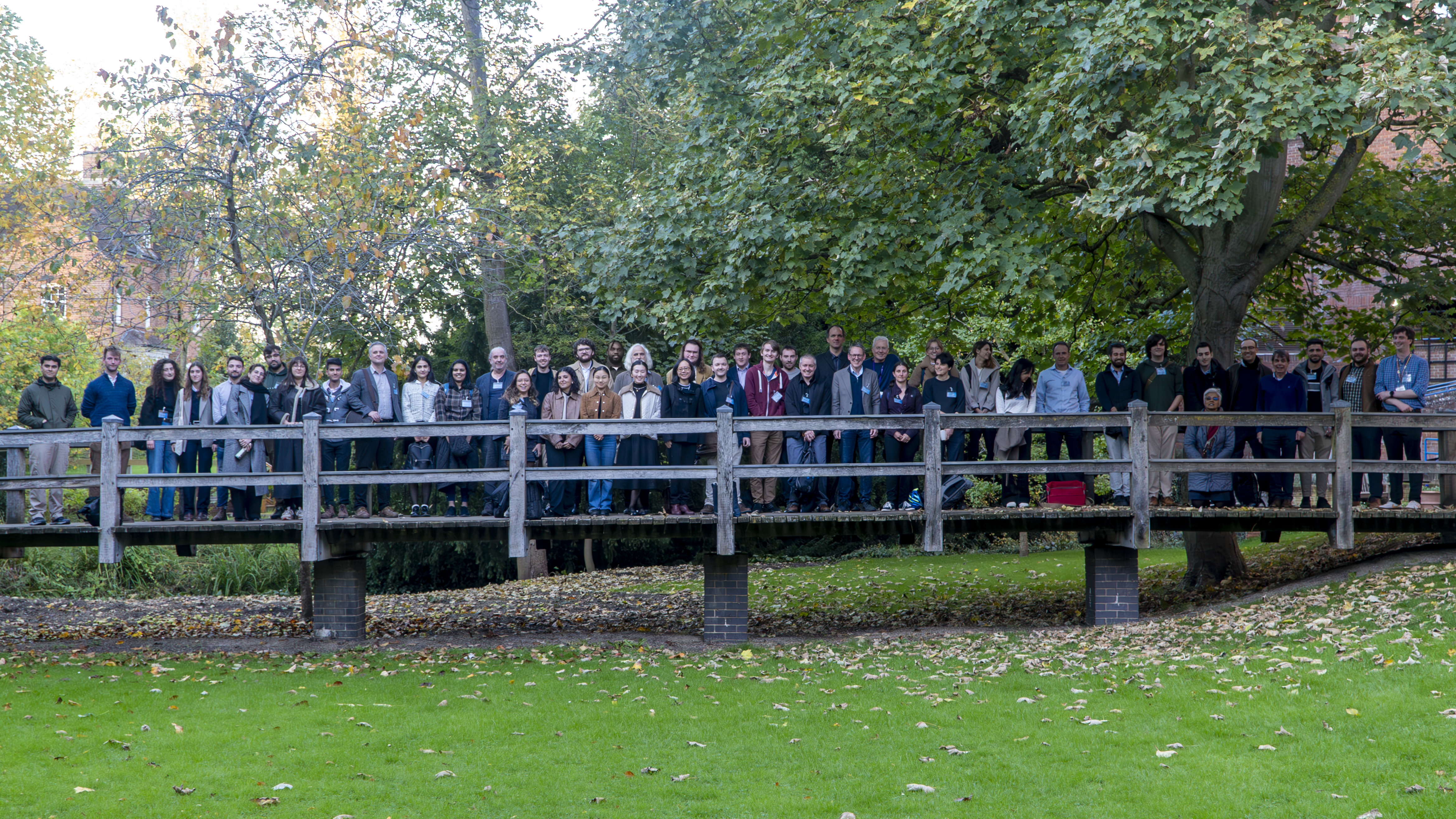
Submitted by Samuel McDermott on Fri, 01/11/2024 - 00:00
In October, we held our annual Sensors Day 2024 at Robinson College, with the theme of Sensing Our Environment. As the flagship event of the Sensor CDT, Sensors Day brings together students, academics, and industry experts interested in sensor technologies for an engaging programme of invited speakers and student presentations.
Our students presented their work in various mediums - artwork, posters and presentations. It was excellent to see the progress they are making in highly innovative, interdisciplinary projects.
Our invited speakers addressed environmental sensing - highlighting the urgent need for accurate sensing and analysis of urban and rural environments.
Prof. Paul Harris and Dr Phil Le Grice from Rothamsted Research presented the North Wyke Farm Platform, a long-term experiment initiated in 2010 to examine sustainable agricultural systems with over 400 sensors across multiple scales. With more than 100 million data points collected, they highlighted key insights on sensor deployment, data management, open data sharing, and the critical role of long-term infrastructure in agri-environmental research.
Our 2023 cohort of students presented their summer Team Challenge project, conducted in partnership with Rothamsted Research. They designed cattle-mounted sensors for monitoring pasture biodiversity - with an innovative device called DAISY. You can read more about this year's project on our website.
Dr Osarenkhoe Ogbeide, Junior Research Fellow at Churchill College, University of Cambridge, discussed his research about inkjet printed graphene-based smart gas sensors. This technology uses inkjet-printed graphene and binary metal oxides to create highly sensitive, room-temperature sensors, addressing challenges in gas selectivity and complex environments.
Dr Leon Barron, Reader in Analytical and Environmental Sciences at Imperial College London, talked about scaling up chemical pollution monitoring in water for ‘One Health’. His talk highlighted recent advancements in analytical methods to monitor extensive chemical contamination in the water cycle, essential for addressing urgent environmental and health concerns.
Dr Emily Lines, Associate Professor in Physical Geography at Cambridge University, presented ecological insights from high-resolution remote sensing and AI in forests. She discussed using these techniques to analyse forest structure, function, and dynamics, and potential future directions to scale.
We were pleased to welcome back Dr Lisa Hecker, a 2016 Sensor CDT alumna and now an Earth Observation Specialist at JNCC. She uses satellite imagery, aerial photography, and LiDAR to map habitats, assess environmental conditions, and detect changes. Her presentation explored using Earth observation data to inform environmental policy.
Prof. Shailaja Fennell, Professor of Economic Security and Resilience at Cambridge’s Department of Land Economy, discussed the social science aspect of sensors with her talk Sensors and Sustainability: Research Design for the Democratisation of Welfare Programmes. She focussed on how sensor technology can support equitable welfare initiatives.
Three students gave talks about their research. Wadood Tadbier presented his research on electrolyte-gated graphene field effect transistors. Anne-Pia Marty talked about her cold-temperature high-resolution microscopy. Justas Brazauskas discussed his approach to human-centric design of real-time digital twins.
The full programme can be read on the Sensors Day 2024 webpage.
Student prizes
Well done to all our students who contributed to Sensors Day and those who won prizes!
Stephen De Bank (2021 cohort) was awarded the prize for Best Research Artwork for his micrograph 'Creatures of the Micron Deep: An eery world appears when you look closely enough on your sample surfaces.'
Eleni Papafilippou (2022 cohort) won the Best Research Poster prize for her poster 'Characterising the rupture, fatigue and recovery of intercellular junctions using a stochastic bond model'.
Anne-Pia Marty (2020 cohort) won the Best Research Talk prize for her talk 'Microscopes but Cooler: High-Resolution Microscopy for 0°C Imaging to Shed a New Light on Cold-Adapted Systems.'

